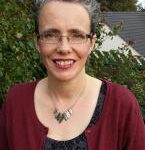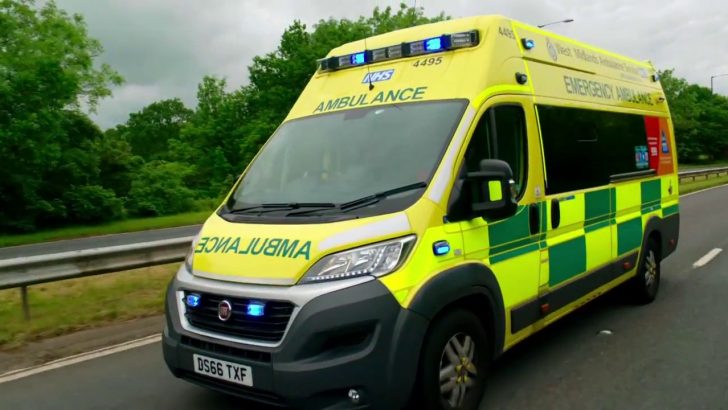Dorcas Lane was the village postmistress in a TV series called Lark Rise to Candleford which we used to watch on a Sunday evening when our children were younger. Any time that Dorcas was caught doing something she felt she shouldn’t be doing, like eating a cream cake, buying another new hat or reading a book during work, she would announce with a mischievous smile, “It is my one weakness!”
I feel a bit the same about a programme that I enjoy watching when I can. It is called Ambulance and is a BBC programme which follows ambulance crews around the greater Birmingham area, from the call being answered in the control centre to the crews on the ground arriving at the scene. I am sure there is probably something more useful and productive I could be doing with that hour, but there is something about this programme that captivates me – and that is the humanity of the staff involved.
There was one week where a crew spent half their night trying to get a young lad with a facial injury off the streets and into a hostel. The lad was living a troubled life, messing with drugs, thrown out of home, vulnerable on the streets. The crew came back two or three times over the course of the night trying to persuade him to accept help. Why were they so involved? One of the crew saw in this lad her own son, who had also gone off the rails, was estranged from her and living on the streets. Her hope was that someone would look after her boy like she was trying to look after this young lad.
Important
Last week there was an elderly man who had terminal cancer and dementia and had lost the power of speech. Called to the nursing home the crew assessed him for transfer to hospital. This man could not speak but reached out to the paramedic who sat down and took his hand. It was powerful to see how important human touch and tenderness were to this man. Throughout the journey to hospital the paramedic sat with him, holding his hand, talking to him, clearly understanding the patient’s silent distress.
I am sure there are text books and protocols that outline how patients should be treated but nothing can capture the beauty of what happens when people allow their humanity and tenderness to shine. And this is what captivates me about this programme – it is a testament to incarnation. Ideas and concepts are all very well but it is when they are expressed in our lives, incarnated – ‘given skin’ as Ronald Rolheiser says – that something very special happens. Here in these people, under highly pressurised and stressful working conditions, their humanity shines forth. They bring great skill and professionalism to what they do but what transforms their role is their own warmth and compassion. I have no idea whether these people believe in God or not, but I do believe that when we allow the goodness of our humanity to shine the image of God shines in us.
In these weeks when there seems to be so much in the news about shootings and violence and the trading of threats between countries, we need to remind ourselves of the goodness of humanity. When we are talking round the dinner table, we need to be able to draw upon images of tenderness, goodness, selflessness and compassion. We need to highlight such virtues when we see them, in each other, in our community and even in the real-life actions of people we see on the television. We are created in the image and likeness of God. That is the core of our humanity.
Ambulance, nurtures my hope and confidence in the goodness of humanity even amidst frailty, brokenness and harsh realities. It is ‘my one weakness’ – or one of them at least and I’m not giving you the list of all the rest!


 Bairbre Cahill
Bairbre Cahill
